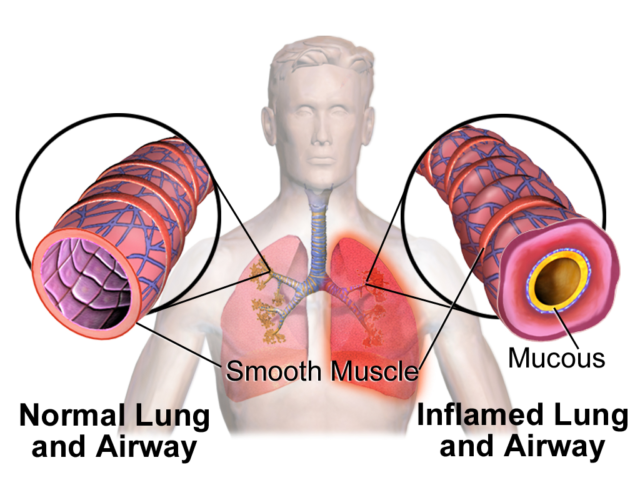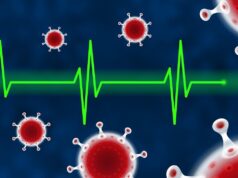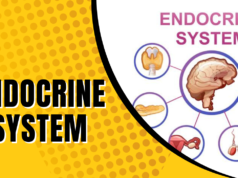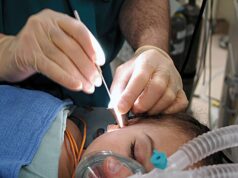Lungs and Breathing
Lungs are vital organs in the respiratory system responsible for the exchange of oxygen and carbon dioxide in our bodies. They play a crucial role in the process of breathing.
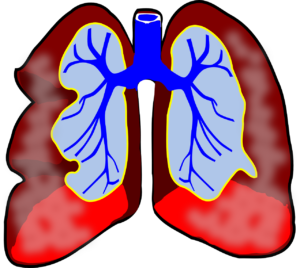
Here’s how the lungs and breathing work:
- Inhalation: When you breathe in, the diaphragm, a dome-shaped muscle located beneath your lungs, contracts and moves downward. This action expands the chest cavity, causing the lungs to expand as well. The expansion of the lungs creates a lower pressure inside compared to the outside air, causing air to rush into the lungs through the nose or mouth.
- Oxygen Exchange: As air enters the lungs, it travels through the trachea (windpipe) and branches into smaller tubes called bronchi, which further divide into bronchioles. At the end of the bronchioles are tiny air sacs called alveoli. The alveoli are surrounded by tiny blood vessels called capillaries. Oxygen from the inhaled air passes through the thin walls of the alveoli and enters the capillaries, where it binds to red blood cells. At the same time, carbon dioxide, a waste product produced by the body’s cells, diffuses from the capillaries into the alveoli.
- Exhalation: After oxygen is taken up by the blood, the diaphragm and other muscles relax, causing the chest cavity and lungs to recoil. This recoil compresses the air in the lungs, increasing the pressure inside. As a result, air is forced out of the lungs, and carbon dioxide is expelled from the body when you exhale.
The process of breathing is controlled by the respiratory center located in the brainstem, which monitors the levels of carbon dioxide and oxygen in the blood. It sends signals to the diaphragm and other respiratory muscles, regulating the rate and depth of breathing to meet the body’s oxygen demands.
It’s worth noting that certain conditions or factors can affect lung health, such as smoking, pollution, respiratory infections, and lung diseases like asthma or chronic obstructive pulmonary disease (COPD). Maintaining a healthy lifestyle, avoiding smoking, exercising regularly, and minimizing exposure to pollutants can help promote lung health. If you have specific concerns about your lungs or breathing, it’s always best to consult a healthcare professional for personalized advice.

